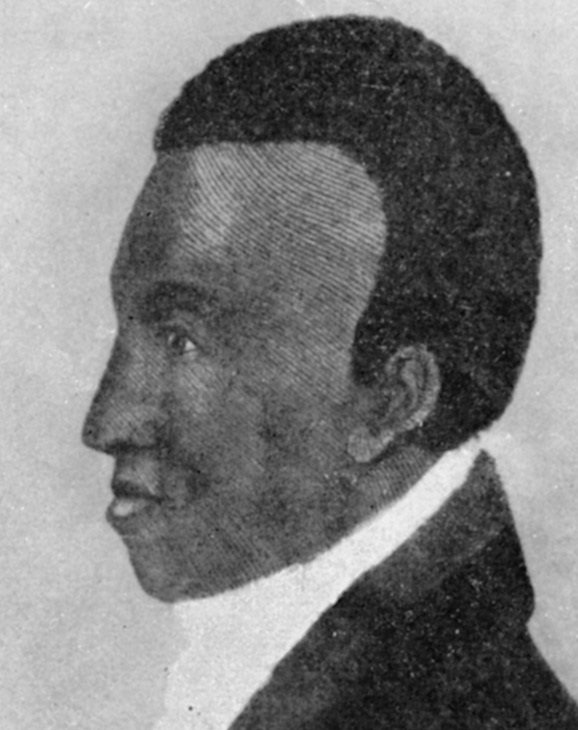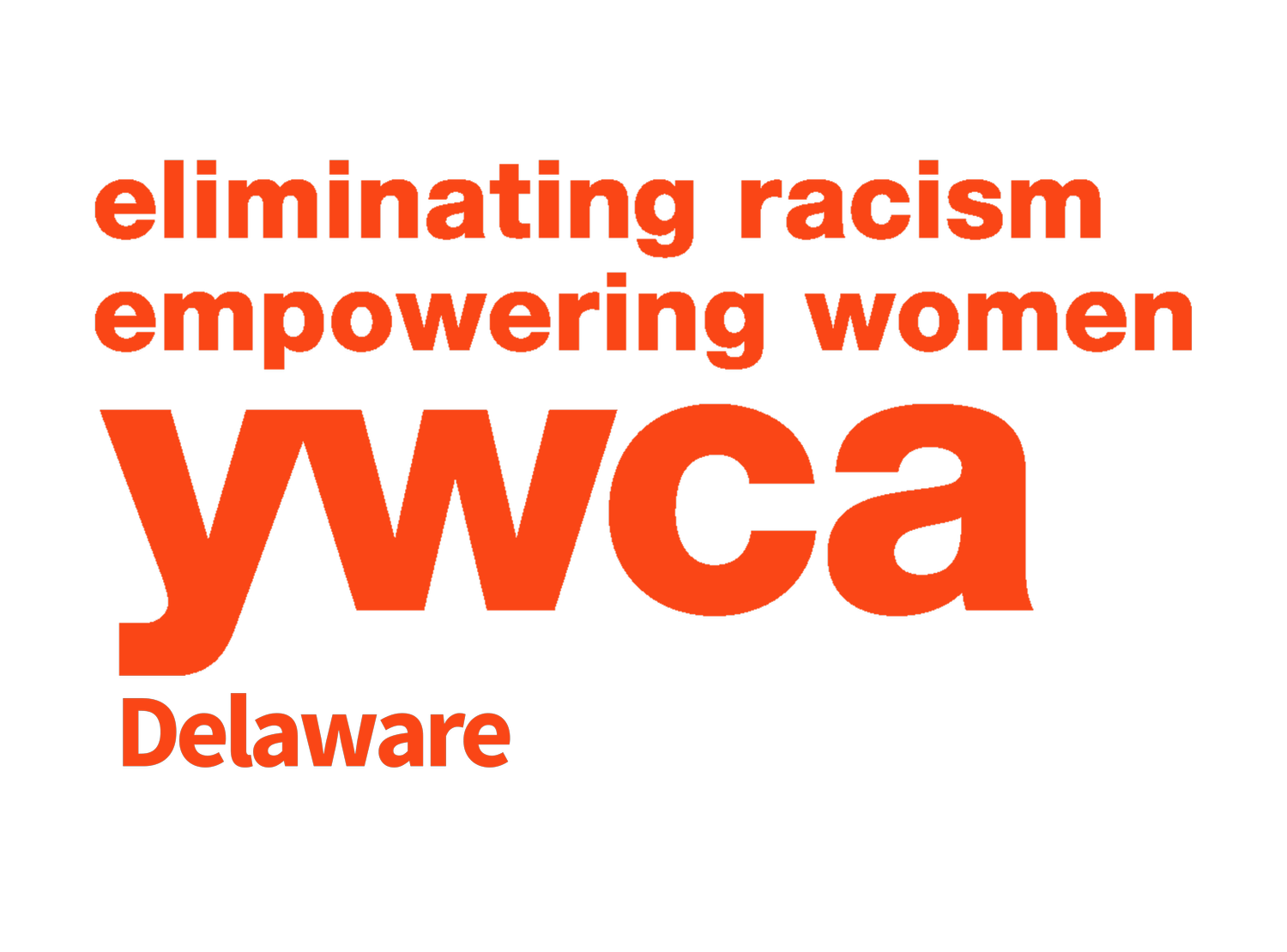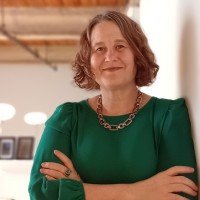
Pioneers of Housing Justice
The Civil Rights Act of 1968, commonly known as the Fair Housing Act, prohibited discrimination in housing based on race, color, religion, or national origin, further contributing to desegregation efforts in housing and residential areas.
Nikole Hannah-Jones
“Until we address the deep, entrenched housing segregation that keeps black Americans from opportunities and that was created by government policy, we cannot move forward as a country.”
-

Bishop Peter Spencer (1782 - 1843)
As a community organizer and leader, Bishop Peter pencer played a key role in addressing social issues affecting African Americans in Delaware. He advocated for housing rights, economic opportunities, and social justice, working to improve living conditions and empower the African American community, promoted educational initiatives, and founded over 30 churches and schools.
Spencer was involved in the Underground Railroad network, aiding fugitive enslaved people seeking freedom in the North. His church and community provided refuge, support, and guidance to those escaping enslavement.
Peter Spencer founded the African Union Church in Wilmington, Delaware, in 1813. This church provided a spiritual and community-focused center for African Americans, emphasizing self-help, education, and social justice.
Spencer initiated the August Quarterly, the oldest African American religious folk festival in the United States dating back to 1814 and held annually in Wilmington, Delaware on the last Sunday of August.
These celebrations were not only religious but also cultural and social events that strengthened community bonds. According to AugustQuarterly.org, during the years of slavery, the festival provided a rare platform for Africans held captive to worship God with each other, and with free men and women. It was reported in the Wilmington Morning News in 1889 that “permission gave them one day of freedom…the opportunity to talk over the long-deferred promise of freedom that every one of them felt was somehow ingrained in the religion of Jesus.”
-

Octavius V. Catto (1839 – 1871)
Octavius V. Catto co-founded the Pennsylvania Equal Rights League, one of the first civil rights organizations dedicated to fighting for the rights of African Americans, including fair housing and equal treatment under the law.
Catto was instrumental in the establishment of the Institute for Colored Youth in Philadelphia, which provided high-quality education to African American students at a time when educational opportunities were severely limited due to racial segregation.
Catto was a strong advocate for the 15th Amendment, which granted African American men the right to vote. He worked tirelessly to mobilize black voters and ensure their participation in the electoral process.
He played a leading role in the campaign for desegregation of Philadelphia’s streetcars, successfully organizing protests and legal challenges that led to the desegregation of public transportation in the city.
-

Dorothy Mae Richardson (1922 – 1991)
Dorothy Mae Riciardson is best known for founding the Neighborhood Housing Services (NHS) movement in Pittsburgh, Pennsylvania, in the late 1960s. The NHS model focused on rehabilitating deteriorating urban neighborhoods by fostering partnerships among residents, financial institutions, and local governments.
Richardson’s grassroots efforts caught the attention of national policymakers. Her work contributed to the establishment of federal support for community-based housing initiatives, including the creation of the Neighborhood Reinvestment Corporation (now known as NeighborWorks America) in 1978.
The organization she founded, NeighborWorks America, continues to support community development and affordable housing initiatives nationwide. Richardson's legacy lives on through the countless families and communities that have benefited from her pioneering efforts.
-

Marian E. Hinson (1945 – 2009)
Marian E. Hinson was a dedicated advocate for fair and affordable housing in Delaware. She worked tirelessly to address housing disparities and ensure that low-income families had access to safe and affordable housing options.
Hinson played a crucial role in the founding of the Delaware Housing Coalition, an organization dedicated to promoting affordable housing and addressing homelessness. Her efforts helped to establish a strong foundation for housing advocacy in the state.
She served as a commissioner for the Wilmington Housing Authority, where she worked on policies and programs aimed at improving housing conditions for residents of Wilmington. Her leadership contributed to better housing management and resident services.
Hinson had a vision of a place to help women and families, not just with a temporary roof, but with a path to full and productive lives. In 1989 Marian was able to see her vision begin to take shape with the opening of the YWCA Home-Life Management Center, a transitional housing site with case management and no time restrictions. She led the Center until her retirement at the end of 2006.
-

Lisa Rice (1963 – Present)
Lisa Rice has been instrumental in leading the National Fair Housing Alliance, the country’s only national civil rights organization dedicated solely to eliminating housing discrimination and ensuring equal housing opportunities for all people.
Under her leadership, NFHA has successfully pursued numerous high-impact litigation cases against discriminatory housing practices, resulting in substantial settlements and policy changes that promote fair housing.
Rice has been a vocal advocate for addressing systemic racism in the housing market. She has worked to highlight and combat discriminatory practices that disproportionately affect communities of color, including redlining and lending discrimination.
She has played a key role in influencing housing policy at the federal, state, and local levels. Rice has provided testimony before Congress and worked with policymakers to advance legislation that promotes fair housing and addresses housing inequities.
-

Nikole Hannah-Jones (1976 - Present)
Nikole Hannah-Jones launched the 1619 Project in The New York Times Magazine, which re-examines the legacy of slavery in the United States and highlights how systemic racism has shaped various aspects of American life, including housing.
Her investigative reporting on housing segregation and discriminatory housing policies has won numerous awards, including the National Magazine Award and a Peabody Award. Her work has brought national attention to the enduring impact of redlining and other forms of housing discrimination.
"Living Apart: How the Government Betrayed a Landmark Civil Rights Law": Hannah-Jones authored this influential investigative piece for ProPublica, which examines the failure of the federal government to enforce the Fair Housing Act and addresses the ongoing segregation in American neighborhoods. This work was pivotal in illustrating the government’s role in perpetuating housing inequities.
In her writing, Hannah-Jones has made compelling arguments for reparations for African Americans as a means to address historical and systemic housing discrimination. She has highlighted the economic and social damage caused by segregation and discriminatory housing policies.
-
Diane Standaert (1979 – Present)
Diane Standaert is the Senior Engagement and Policy Fellow at the Consumer Financial Protection Bureau and has been a leading advocate for fair lending practices, working to combat predatory lending and ensure equitable access to financial services for low-income communities and communities of color.
Standaert has played a crucial role in advocating for stronger consumer financial protections, including efforts to regulate payday lending and other high-cost financial products that disproportionately affect vulnerable populations.
Her work has significantly influenced state and federal policies, contributing to the development and implementation of laws and regulations that protect consumers from unfair financial practices and promote economic justice.
As Executive Vice President at Prosperity Now, Standaert has helped steer the organization’s strategic direction, focusing on initiatives that promote asset building, financial security, and economic mobility for low-income families and communities of color.
-

Matthew Desmond (1979 – Present)
Matthew Desmond, a prominent sociologist and author, is best known for his groundbreaking work on poverty, housing instability, and eviction through his Pulitzer Prize-winning book "Evicted: Poverty and Profit in the American City," which brought widespread attention to the devastating impact of eviction on low-income families in America. Desmond conducted extensive research and embedded himself in communities to provide an intimate portrayal of the lives affected by eviction, shedding light on systemic issues within the housing market.
Desmond founded the Eviction Lab at Princeton University, a research project that collects and analyzes eviction data nationwide. The Eviction Lab provides critical insights into eviction rates, trends, and disparities, informing policy discussions and advocacy efforts.
Desmond is a vocal advocate for housing justice and tenant rights. He has used his platform to call for reforms that protect vulnerable renters, increase access to affordable housing, and address the root causes of eviction and housing instability.
Housing Justice Facts
Housing Justice
Though discrimination in housing was officially outlawed decades ago, enduring discriminatory government policies, criminal justice practices, and illegal real estate practices continue to cause segregation and unequal access to safe and affordable housing for marginalized communities, leading to adverse health effects.
People of colore are more likely than white people to experience homelessness
58% of Black people experiencing homelessness are part of families with children, which is much higher than for white people (26%) or Native people (27%). Black Americans, despite making up just 12% of the U.S. population, also account for 33% of the homeless population total and 27% of the unsheltered homeless population.
Redlining
Redlining was a systematic denial or limiting of private, public, and government services—such as mortgages, insurance loans, and other financial services—to certain neighborhoods based on racial and ethnic composition, with neighborhoods of color being within the “red lines”. These “red lines” were drawn in the 1930s by a federal agency, the Home Owners’ Loan Corporation (HOLC), which drew “Residential Security” maps of major American cities.2 Redlining was not outlawed until 1968.
In a 2022 demographic analysis of 138 areas where HOLC drew maps, nearly all formerly redlined zones are still disproportionately Black, Latino, or Asian when compared with their surrounding metropolitan areas; two-thirds of green-lined zones—neighborhoods that HOLC deemed the “best” for mortgage lending—are still overwhelmingly white.
The two fastest growing groups of people experiencing homelessness in the U.S. are single women and mothers with children:
The “typical” homeless family is headed by a low-income single mother caring for two children under the age of six. Women of color are overrepresented in these families; in 2022, 50% of all homeless families with children were Black, and nearly 30% were Hispanic/Latinx.
Discriminatory Housing Practices
Across the country, homes in majority-Black neighborhoods are significantly devalued at $48,000 less than those in predominately white neighborhoods for a cumulative loss in equity of approximately $156 billion.
Explore Our Journey to Freedom
Mile Markers
-
Courageous Leaders of the Abolitionist Movement
-
Pioneers and Leaders of YWCA
-
Civil Rights in America
-
Celebrating Voting Rights Champions
-
Spotlighting Reproductive Justice Advocates
-
Champions of Education Equality
-
Advocates Driving Criminal Justice Reform
-
Pioneers of Housing Justice
-
Youth Leaders of America
YWCA Delaware's Racial and Social Justice (RSJ) program helps to transform communities by awakening consciousness, promoting inclusion and solidarity, and cultivating civic engagement in individuals and organizations to advocate for justice and inspire a movement.


